Abstract
"Best interests" is widely accepted as the appropriate foundation principle for medico-legal decisions concerning treatment withdrawal from patients in persistent vegetative state (PVS). Its application appears to progress logically from earlier use regarding legally incompetent patients. This author argues, however, that such confidence in the relevance of the principle of best interests to PVS is misplaced, and that current construction in this context is questionable on four specific grounds. Furthermore, it is argued that the resulting legal inconsistency is distorting both the principle itself and, more particularly, individual patient interests.
Full text
PDF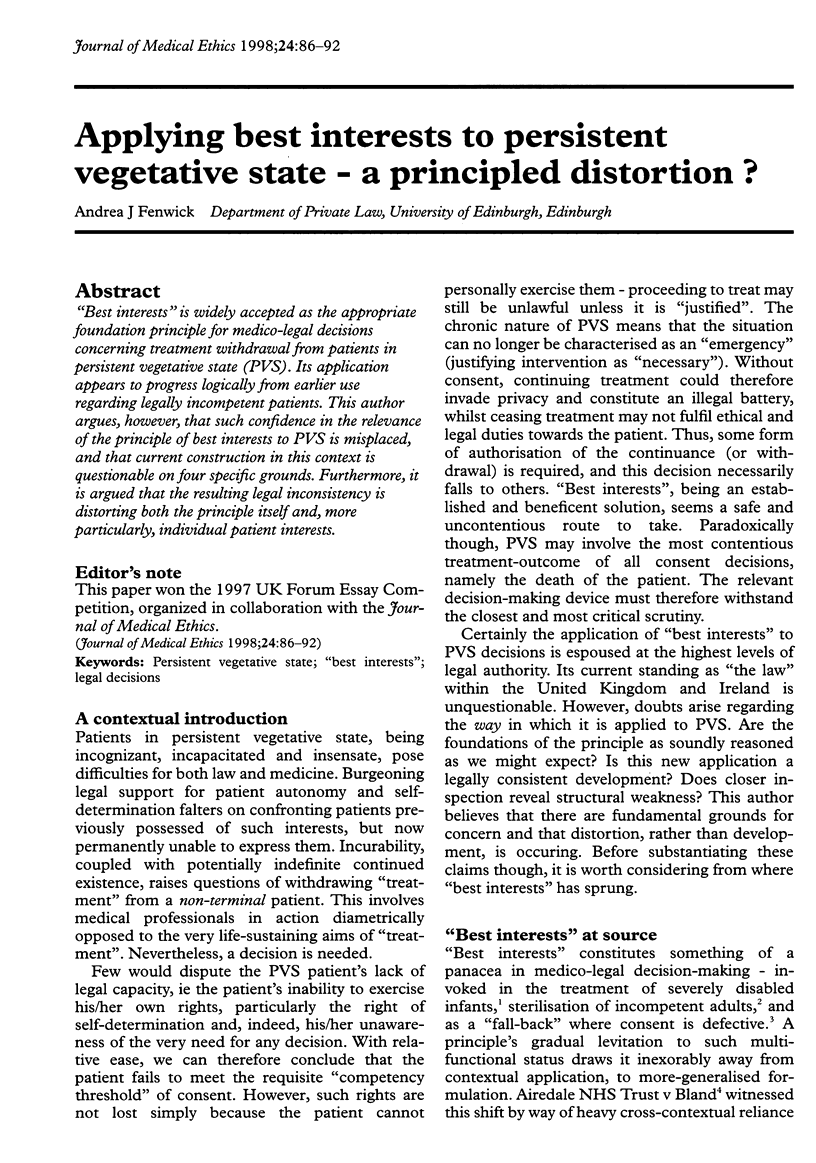
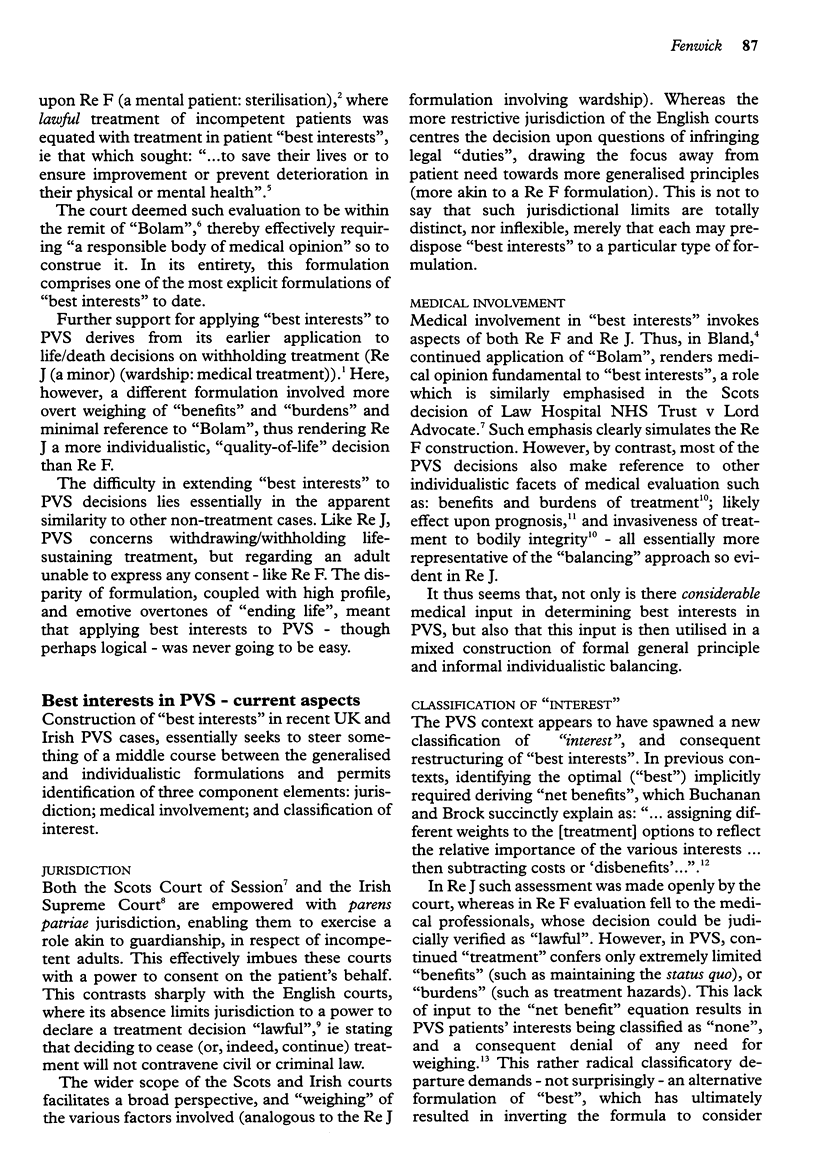
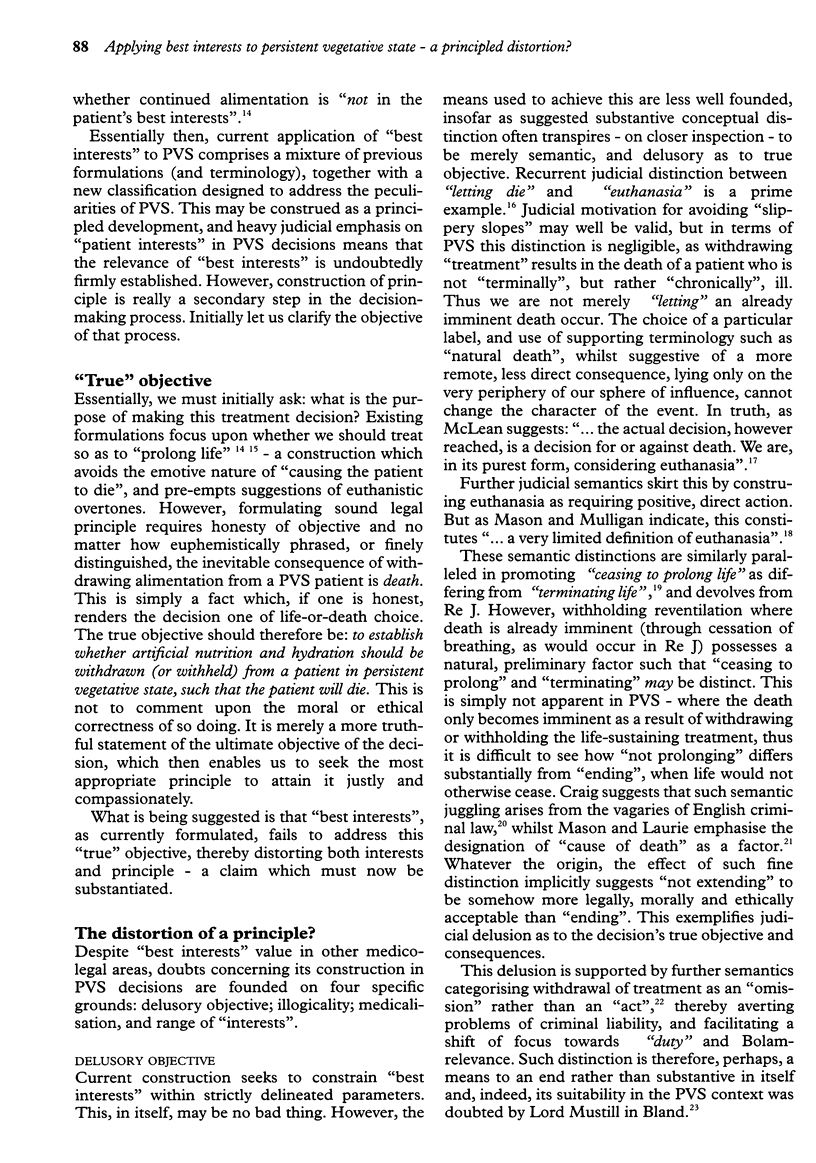
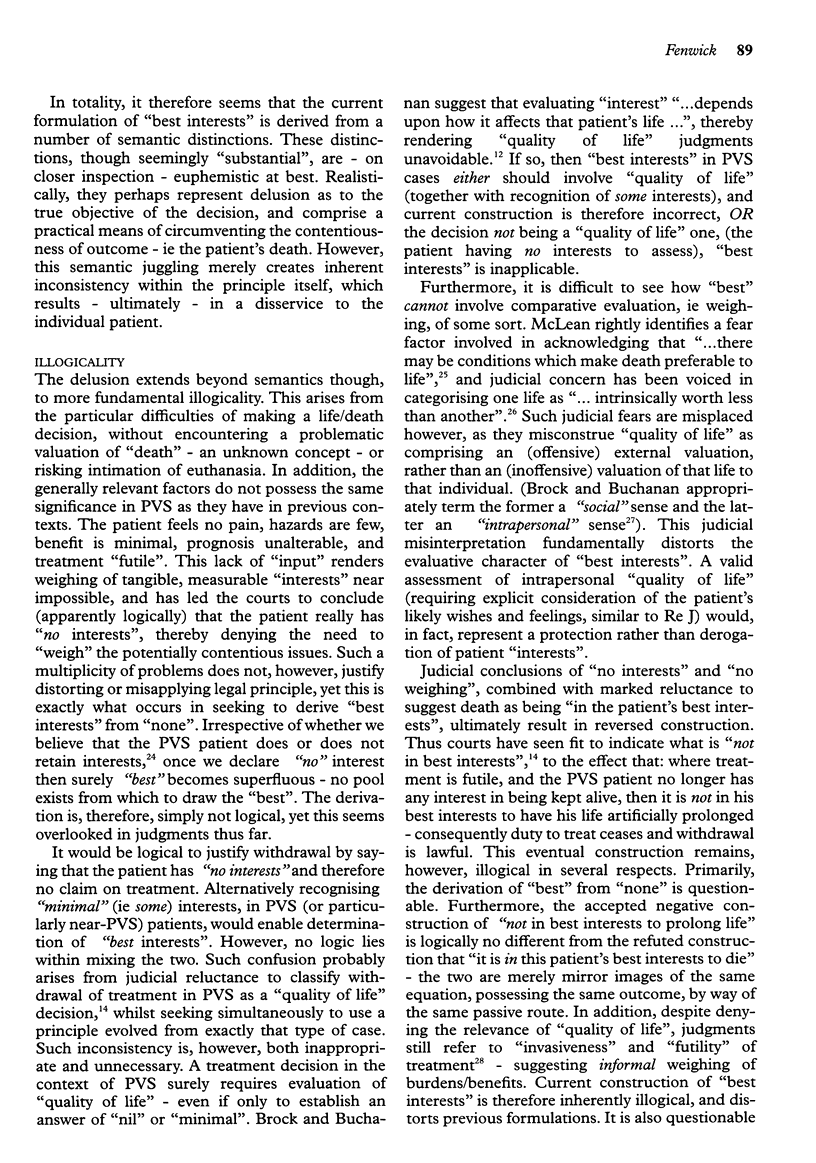

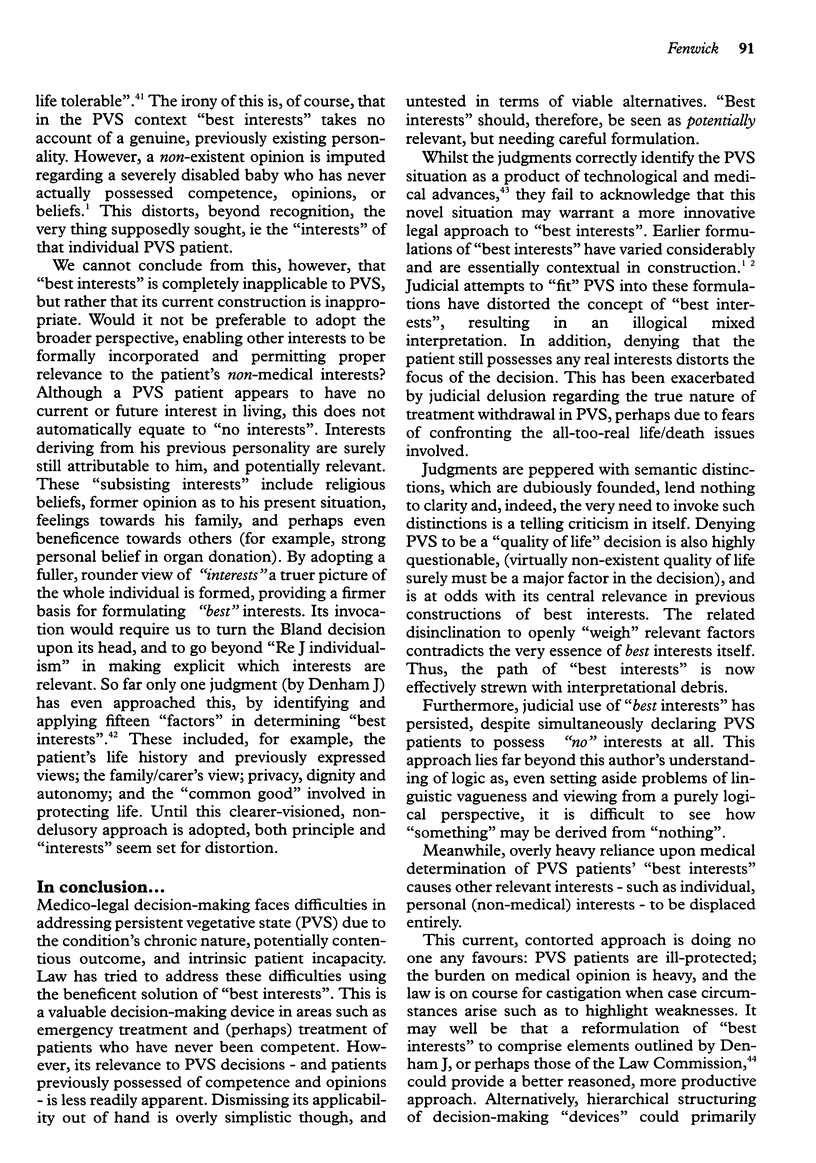
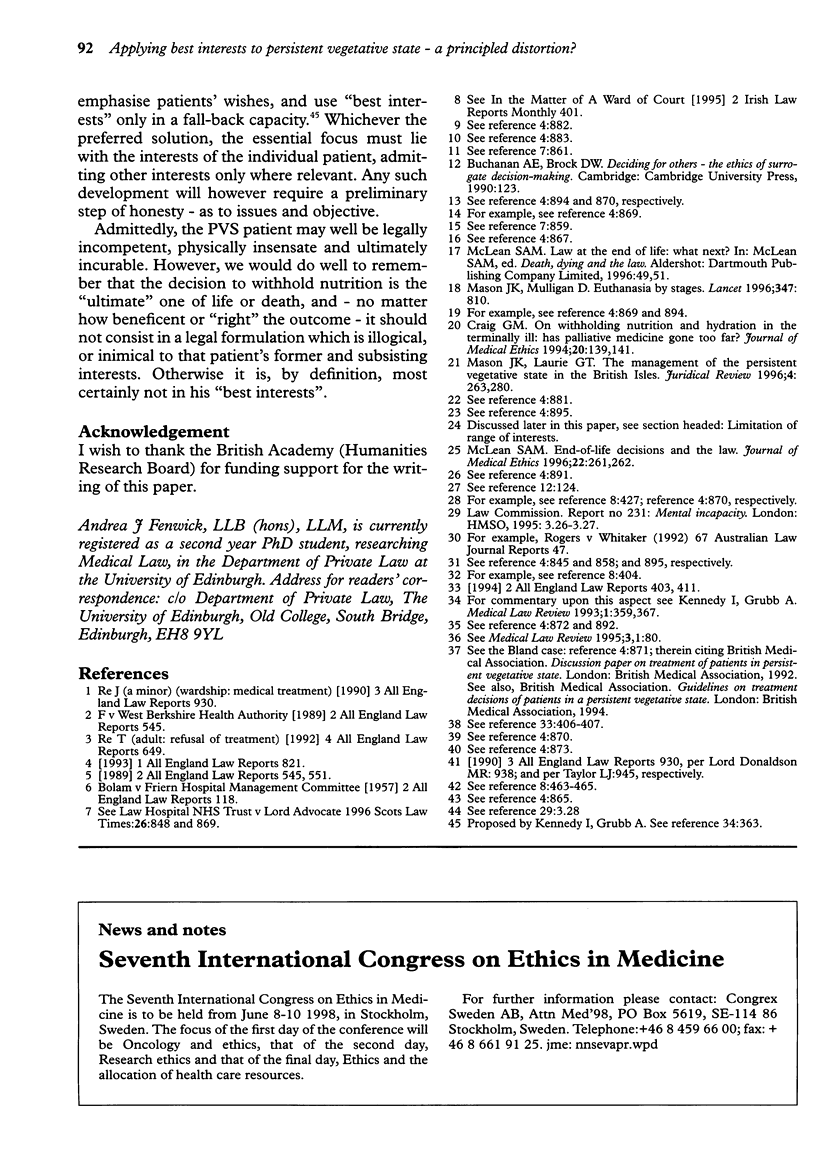
Selected References
These references are in PubMed. This may not be the complete list of references from this article.
- Craig G. M. On withholding nutrition and hydration in the terminally ill: has palliative medicine gone too far? J Med Ethics. 1994 Sep;20(3):139–145. doi: 10.1136/jme.20.3.139. [DOI] [PMC free article] [PubMed] [Google Scholar]
- Mason J. K., Mulligan D. Euthanasia by stages. Lancet. 1996 Mar 23;347(9004):810–811. doi: 10.1016/s0140-6736(96)90875-2. [DOI] [PubMed] [Google Scholar]
- McLean S. End-of-life decisions and the law. J Med Ethics. 1996 Oct;22(5):261–262. doi: 10.1136/jme.22.5.261. [DOI] [PMC free article] [PubMed] [Google Scholar]


